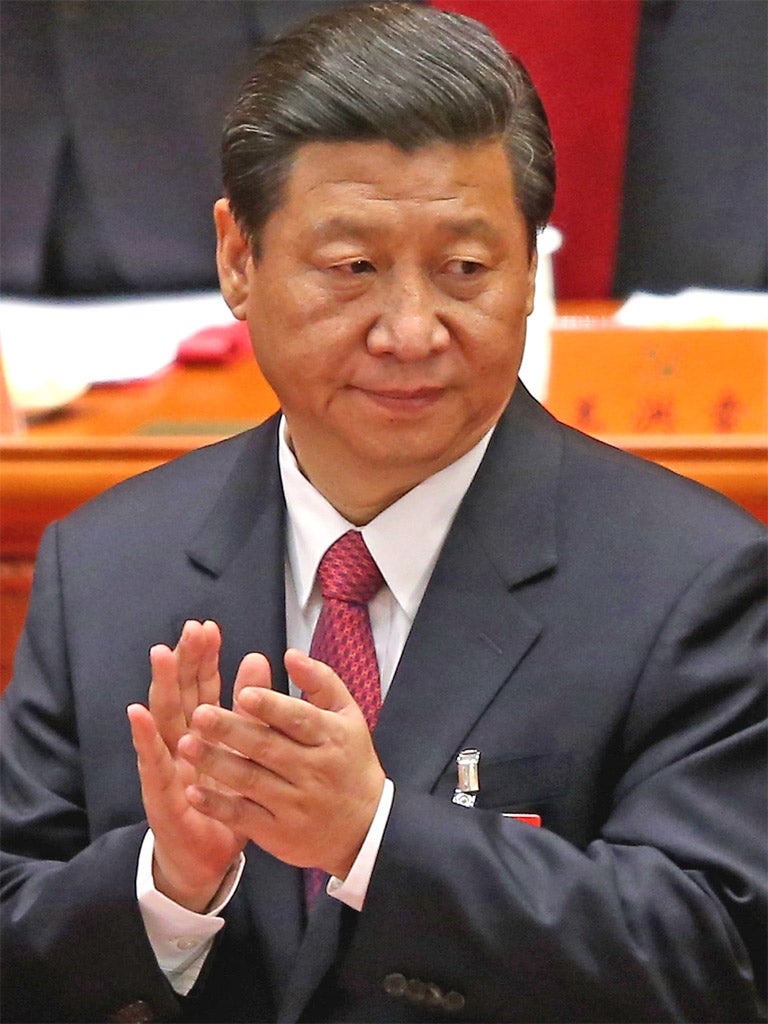The votes are cast, but the result was never in doubt for this president
Vetted Congress delegates back new ruling elite with Xi Jinping as next leader of the People's Republic

The world will wake this morning to a new leader of China as the country's once-in-a-decade change-over ends with the anointment of Xi Jinping as the leader of the People's Republic.
"The Internationale" rang out in Beijing's Great Hall of the People yesterday as President Hu Jintao hailed a victorious Party Congress and set the stage for Mr Xi to replace him.
"The Congress has elected a new Central Committee of the Party and replaced older leaders with younger ones," said Mr Hu in a brief address, almost certainly his last as party leader, although he does not hand over the presidency until March, and it is uncertain when he will step down as head of the People's Liberation Army.
"We should free up our minds, implement the policy of reform and opening up, pool our strength, overcome difficulties, firmly march on the path of socialism with Chinese characteristics, and strive to make progress in building a moderately prosperous society in all respects," he said.
As journalists waited in a neighbouring room, the 2,268 carefully vetted delegates cast their votes for the new Central Committee – a ruling council with around 200 full members and 170 alternate members with no voting rights.
This committee will today appoint a Politburo of a few dozen members and then a Politburo Standing Committee, the elite. There is speculation that the Standing Committee might be reduced to seven members from nine. The Standing Committee will then stroll out on stage this morning at another event in the Great Hall, and by the order in which they emerge, we will know who will be the next leader of the world's most populous country and its second-biggest economy. It is almost certain that it will be Mr Xi.
The incoming leadership will have to address China's growing economic woes, by weaning the economy away from exports and boosting domestic consumption, and also keeping a lid on growing dissent.
All of the main favourites made it on to the Central Committee – the main governing body – including North Korean-trained economist Zhang Dejiang, organisation chief Li Yuanchao and Tianjin party boss Zhang Gaoli. Also elected were Wang Yang, Guangdong province's party boss who is depicted as a reformer, Shanghai party boss Yu Zhengsheng and the only woman in the running, Liu Yandong.
The Party Congress to decide the once-in-a-decade leadership transition began on 8 November with a work report from Mr Hu, and since then the senior cadres have been busy horse-trading behind closed doors at different venues around the city.
The main report ending the 18th Congress was read out by a bureaucrat, while the past, present and future leaders of China sat motionless at a long table overlooked by a giant hammer and sickle, their teacups in front of them.
Among those seated were Mr Hu's predecessor Jiang Zemin, who last year was said to have died, but the octogenarian looked well. Mr Xi sat there, and seemed strangely isolated. No one approached him as the gathering broke up, as if being on the cusp of such great power was wearing heavily on his shoulders.
Also seated at the long table was Premier Wen Jiabao and Li Keqiang, who is expected to succeed Mr Wen next March, and various figures set to feature in the Standing Committee.
The Congress has been overshadowed by the scandal involving the one-time rising star in the party ranks, Bo Xilai, who will probably face trial on corruption charges after the Congress is over. His wife Gu Kailai has been jailed for her part in the murder of the British businessman, Neil Heywood – yesterday was the anniversary of his death.
In Tiananmen Square, outside the Great Hall, soldiers with fire extinguishers stood guard in case any Tibetan activists used the opportunity of the Congress to self-immolate and draw attention to their cause.
Subscribe to Independent Premium to bookmark this article
Want to bookmark your favourite articles and stories to read or reference later? Start your Independent Premium subscription today.

Join our commenting forum
Join thought-provoking conversations, follow other Independent readers and see their replies